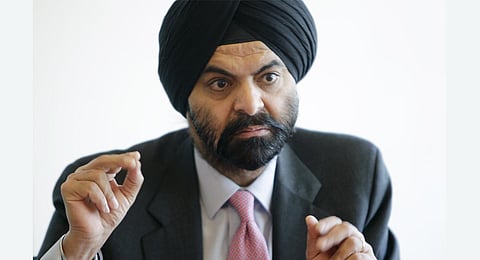

In another setback for Pakistan regarding the Indus Waters Treaty, the World Bank, which mediated the agreement between India and Pakistan, has dismissed rumours that it will intervene to resolve the current crisis relating to the treaty.
Ajaypal Singh "Ajay" Banga, the president of the World Bank Group, clarified that the World Bank has no role beyond being a facilitator.
Banga's full statement was shared on the social media platform X, formerly known as Twitter, by the Press Information Bureau. He remarked, “There’s a lot of speculation in the media about how the World Bank will step in and solve the problem, but it’s all bunk. The World Bank’s role is merely as a facilitator.”
Banga, an Indian-American business executive, is visiting India to attend events in Uttar Pradesh. He met with Prime Minister Narendra Modi on Thursday.
India placed the 65-year-old Indus Waters Treaty (IWT) in abeyance after the horrific April 22 terror attack in Pahalgam where 25 male tourists from 14 different states were selectively killed on the basis of their religion.
In 1955, the US worked with the World Bank to facilitate discussions on the sharing of river waters between India and Pakistan, ultimately leading to an agreement on 19 September, 1960. This has long been hailed as the most successful international water treaty as it survived three full-scale wars between the two neighbours.
Under the treaty, Pakistan was given waters of the three western rivers — Jhelum, Chenab and Indus — while India got absolute control of waters of the three eastern rivers — Satluj, Beas and Ravi.
The western rivers provide a total of 80 million acre-feet (MAF) of water, of which India can use only up to 3.6 MAF for non-consumptive purposes, which include irrigation, drinking water supply, navigation, and hydropower generation without changing the course of the river.